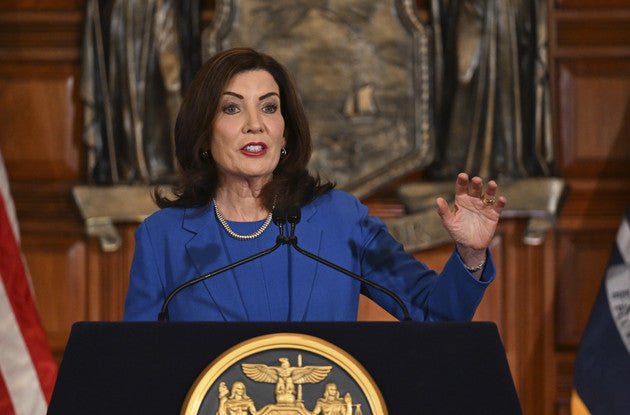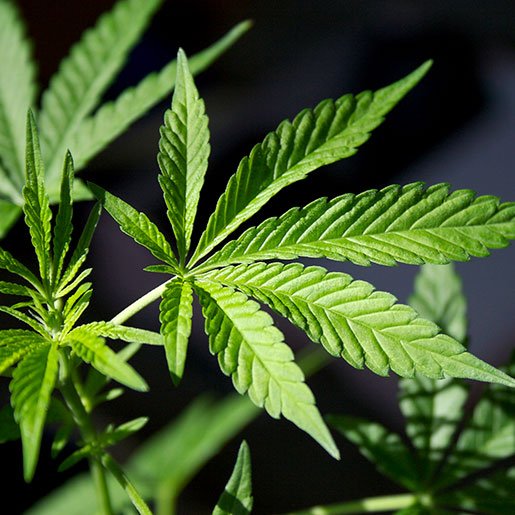The case seeks to use an obscure state constitutional provision enabling the unlicensed sale of cannabis by individuals cultivating their own plants for personal consumption.

The issue of home cultivation by individuals is one of the most challenging "grey areas" of legalizing cannabis for recreational use. Most marijuana legalization statutes or ballot initiatives include some form of legalized home growth for individuals over 21.
However, those provisions rarely address how to handle the right to sell cannabis cultivated by those who choose to grow their own plants. Now, a new lawsuit brought by four Minnesota residents who grow small amounts of marijuana in their homes is challenging the notion that the state must license them to sell any excess cannabis they produce.
As first reported by the Minnesota Post, those individuals are suing the state Office of Cannabis Management (OCM) for the right to sell under a relatively obscure provision in the Minnesota Constitution. The lawsuit, which names OCM interim director Charlene Briner and state Attorney General Keith Ellison, was filed last Tuesday in Ramsey County District Court.
According to the details of the suit, the plaintiffs are citing Article 13, section 7 of the Constitution, which states, "No license required to peddle. Any person may sell or peddle the products of the farm or garden occupied and cultivated by him without obtaining a license, therefore," to contest the state's authority to prevent the sale of cannabis by the farmer who grows it.
"No license required to peddle. Any person may sell or peddle the products of the farm or garden occupied and cultivated by him without obtaining a license, therefore."
- Article 13, Section 7 of the Minnesota State Constitution
Under the adult-use cannabis legalization statute passed last Spring and signed into law by Governor Tim Walz (DFL), only businesses licensed by the state can sell cannabis. The plaintiffs hope to use the little-known provision adopted 120 years ago to circumvent the licensing process and sell their excess proceeds without a license.
The impetus for adopting Article 13, section 7, stems from the arrest of a farmer who attempted to sell his excess melons on the streets of Minneapolis without a peddler's permit. As long as hemp and cannabis remained illegal, the handful of cases brought under the provision ruled against the right to sell. However, with the passage of the legalization statute the legal math may be shifting in favor of the individual grower.
At least, that's the argument being offered by the four residents who are growing up to eight cannabis plants in their respective homes (the limit allowed under the new law). One of those four is Patrick McClellan, who lives with a rare form of muscular dystrophy and has been an outspoken advocate for medical cannabis since before the state legalized it.
As the suit outlines, "Plaintiff McClellan's plants produce more product than he can reasonably consume for recreational or medicinal purposes. The costs of growing at home are significant. The costs include equipment for proper cultivation as well as additional expenses in order to be statutorily compliant and cultivate his medicine within his home."
The suit continues, stating, "Plaintiff McClellan cannot reasonably consume all cannabis that he has cultivated in his home for his medicinal purposes. As a patient who has endured the struggle of gaining access to affordable and safe medical marijuana, Plaintiff McClellan would like to offset the costs of growing cannabis by selling the excess crop to other similarly situated individuals."
As a result, the plaintiffs are asking the court to declare that individuals who grow their own cannabis plants at home "do not need to obtain a license to sell their product." They further ask the court to prohibit the state from bringing "any criminal enforcement of the sale of cannabis produced from home cultivation pursuant to [the constitutional provision] based on the absence of a license to do so."
Initially, Minneapolis attorney Jeffrey O'Brien, who brought the lawsuit, tried to get the OCM to provide a declaratory opinion. In an affidavit filed with the case, O'Brien said he sent a letter to the OCM and Department of Health asking for the opinion to ensure they would not take action against home growers who attempt to sell their produce.
O'Brien did not receive a response from Health but did get a brief email from the OCM stating, "The Office of Cannabis Management does not issue Advisory Opinions. We are aware of the discussion surrounding the product of the farm exemption and cannabis and are monitoring it closely. Given that your question may implicate matters of criminal law, we recommend reaching out to county attorneys in the relevant jurisdictions."
"The Office of Cannabis Management does not issue Advisory Opinions. We are aware of the discussion surrounding the product of the farm exemption and cannabis and are monitoring it closely. Given that your question may implicate matters of criminal law, we recommend reaching out to county attorneys in the relevant jurisdictions."
- Email from OCM Regarding Declaratory Opinion on Selling Home Grows
During an interview on Thursday, O'Brien stated he does not believe his clients are making an unreasonable request of the court. If they are allowed to cultivate cannabis plants and give away any of their excess, then they should, under the constitution, be able to sell what they grow as long as the buyers are over 21.
"As long as we stay within the lanes that you set up in terms of rules and regs, as long as we limit it to what can be grown legally, it would seem straightforward that you're able to sell the products off of those plants per article 13, section 7 of the constitution," O'Brien said.
He does concede that if the OCM establishes product testing and cultivation safety guidelines, his clients would be obliged to follow them. However, until then, the number of plants cultivated and the age of the customers would be the only rules they must follow if the court sides with their argument.
"We're trying to be reasonable," O'Brien said. "We're not saying you can grow an entire field and sell it without a license. We're saying to the extent you can legally grow on your own without a license, you are entitled to sell that product."
"We're trying to be reasonable. We're not saying you can grow an entire field and sell it without a license. We're saying to the extent you can legally grow on your own without a license, you are entitled to sell that product."
- Jeffrey O'Brien, Plaintiffs' Attorney
If the court does rule that the constitutional provision covers cannabis as a legal farm product, the broader implications could be significant. In response to a question regarding how he thinks the constitution will impact legal cannabis in Minnesota last year, Oliver Steinberg, founder of the Grassroots – Legalize Cannabis Party, wrote, "Starting with the premise that cannabis is a plant, not a crime, we envision a peaceful community where growing a little hemp to smoke, share, or sell at farmers' markets is no more unusual than growing rutabagas or zinnias."
"Starting with the premise that cannabis is a plant, not a crime, we envision a peaceful community where growing a little hemp to smoke, share, or sell at farmers' markets is no more unusual than growing rutabagas or zinnias."
- Oliver Steinberg, Founder of the Grassroots – Legalize Cannabis Party
While most people do not grow their own cannabis, and the amounts under consideration in the lawsuit may not seem that substantial, the impact of the case and the court's ruling could serve as a powerful symbol for maintaining the fierce independence and economic sovereignty of the individual cannabis grower.
With massive corporate investment already overwhelming the burgeoning adult-use cannabis industry nationwide, a win for the "little guy" in Minnesota could set a powerful precedent as legalization continues to spread across the country.








































